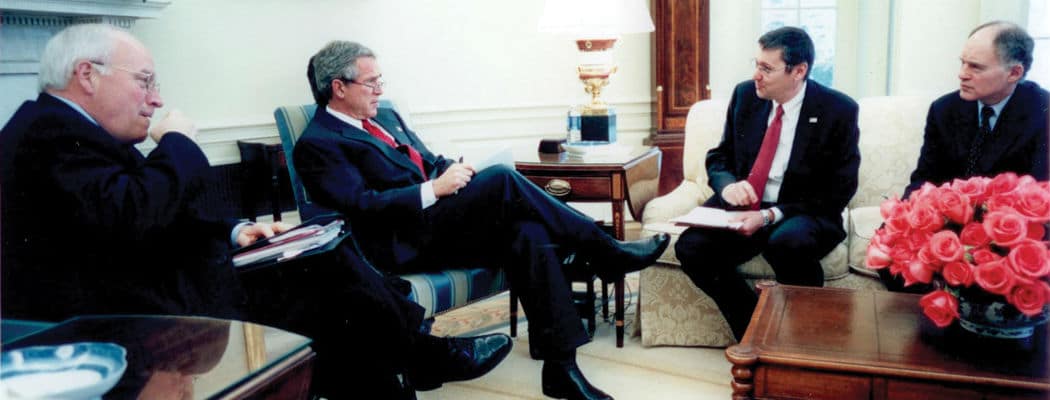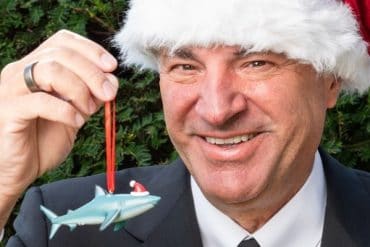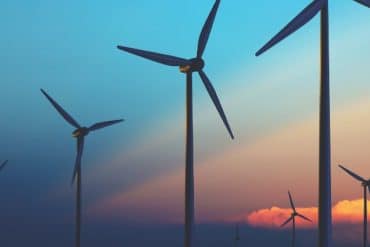Harvard economist & Nantucket summer resident Greg Mankiw shares his thoughts on today’s economy.
As the Robert M. Beren Professor of Economics at Harvard, summer resident Greg Mankiw has shaped the minds of tens of thousands of students. His thirty-three-year tenure at Harvard was punctuated by a three-year role serving as the chair of President George W. Bush’s Council of Economic Advisors in the White House. Today, outside of his widely read textbooks, Mankiw’s theories on the economy can be read every other week in his column in The New York Times. N Magazine met with Professor Mankiw on Harvard’s campus and got his thoughts on the state of today’s economy.
N MAGAZINE: We are enjoying one of the longest economic expansions in modern American history, and many are wondering when will the inevitable slow down occur. Is a slowdown inevitable, and, if so, what do you think will trigger it?
PROF. MANKIW: We will surely have another recession at some time, but there is no reason to think it will come soon just because this expansion has already been a long one. Expansions don’t die of old age. They die because something kills them. One possible suspect, if we do get another recession, is excessive tightening by the Federal Reserve. I don’t see evidence of that happening yet. But whenever the Fed tightens, as it has been doing, the risk of recession rises.
N MAGAZINE: The economy is clearly booming right now. How much of this growth do you think has been fueled by Trump’s policies?
PROF. MANKIW: That is impossible to say with any degree of confidence. The state of the economy at any moment depends on current policies, past policies, and numerous forces beyond the control of any policymaker. I can say that the economy was in fine shape at the end of the Obama administration, despite what President Trump sometimes asserts. The Trump tax cuts likely made it stronger, while worsening the long-term fiscal imbalance.
Reasonable economists can and do disagree about the Trump tax bill. My own view is that the bill was a mixed bag. The corporate rate cuts and reforms were sensible, moving us closer to the corporate tax systems in many other countries. But the changes in the tax treatment of non-corporate businesses — the so-called pass-through entities — were a bit of a mess. They further complicate an already overly complex tax code.
N MAGAZINE: There has been a tremendous amount of talk regarding the risks of global trade war. Some of our trading partners, however, seem to have caved to Trump’s threats. Do you see a trade war, particularly relative to China, as a real threat or do you think it will be resolved and possibly in our favor?
 PROF. MANKIW: President Trump’s tariffs are a step in the wrong direction. Economists have defended free trade for over two centuries, dating back to Adam Smith’s book The Wealth of Nations, and much historical evidence supports this position. Mr. Trump thinks that past trade deals have been bad for the United States and that our trading partners are taking advantage of us. I disagree. Like most economists, I see international trade as win-win.
PROF. MANKIW: President Trump’s tariffs are a step in the wrong direction. Economists have defended free trade for over two centuries, dating back to Adam Smith’s book The Wealth of Nations, and much historical evidence supports this position. Mr. Trump thinks that past trade deals have been bad for the United States and that our trading partners are taking advantage of us. I disagree. Like most economists, I see international trade as win-win.
The one exception, where I agree with Mr. Trump, concerns China’s treatment of intellectual property. The United States is a big producer of intellectual property, such as software, movies and technological innovations. China’s failure to protect at copyright and patents is a significant problem, and the president is right to call them out on it. But his belligerent attitude toward our trading partners in Europe and North America makes less sense.
N MAGAZINE: The growth in the economy and resulting reduction in unemployment seems to pose a risk that we simply do not have enough people to fill jobs at various levels of the economy. With Trump making immigration more and more difficult, how are we going to keep the economic expansion alive, if we don’t have enough people to do the work?
PROF. MANKIW: I don’t think we absolutely need immigration to sustain the expansion, but I do favor a more open immigration policy than President Trump does. There are several reasons why I am sympathetic to immigration. As an economist, I am skeptical whenever the government prohibits voluntary trades between consenting adults, and that is what immigration restrictions do. But my views on immigration go beyond the economics of the matter and are deeply personal. When I see unskilled Mexican workers coming to the United States looking for better jobs, I cannot see any difference between them and four Ukrainian immigrants I know who came into the United States a century ago to find better lives. Those four Ukrainians were my grandparents. So to me, taking a hard line on immigration feels like slamming a door in the face of my grandmother.
 N MAGAZINE: On Nantucket and many resort communities, seasonal workers using the J-1 Visa program are essential. How is this problem going to be resolved?
N MAGAZINE: On Nantucket and many resort communities, seasonal workers using the J-1 Visa program are essential. How is this problem going to be resolved?
PROF. MANKIW: As I said, I favor a more open immigration policy. And that includes seasonal workers. But if we don’t get that outcome, the labor market will have to make the necessary adjustments. Some wages would need to rise to attract more domestic workers. Some services would become more expensive. Some businesses might no longer be viable. Those adjustments would be painful for some people on Nantucket, but ultimately things would sort themselves out. In the long run, markets are resilient and respond to scarcity, including scarcity of workers.
N MAGAZINE: President Obama recently proclaimed that he is responsible for the economic resurgence that we are now experiencing. Do you feel that there were policies that he institute that are now bearing fruit?
PROF. MANKIW: When President Obama took office in 2009, the economy was in the midst of the financial crisis and Great Recession. He and his economic team, along with the Federal Reserve, deserve a lot of credit for averting another Great Depression. On the other hand, the pace of the recovery from this recession was meager by historical standards. The open question is whether other policies might have promoted a more robust recovery. At this point, the honest answer is that we really don’t know.
N MAGAZINE: We have seen the signs of an electoral backlash to President Trump, which some are calling the “new socialism.” How concerned are you that the pro-growth policies now in effect could be replaced with policies that focus on wealth redistribution?
PROF. MANKIW: A classic trade-off in economics is that between equality and efficiency. The more the government pursues policies to promote equality in the name of fairness, the more it dulls the incentives that promote economic growth. We need a social safety net to help those who are struggling. The big question is how generous it should be.
In the past, as the nation has fluctuated between the center-right like President Bush and the center-left like President Obama, policy changes have been moderate in size. Most political debate in this country takes place between the 40 and 60 yard lines. As a result, we usually reach reasonable compromises between competing goals.
But the growing appeal of socialism could mean a large shift toward the equality end of the policy spectrum. In my judgment, that would sacrifice too much growth. I hope that doesn’t happen, but it might.
N MAGAZINE: The concentration of wealth on Nantucket is extraordinarily high. There seems to be a growing backlash at the inequality between the top 1/10th of 1 percent of the population and the working class of this country. Is the perception among some that the extreme wealth at the top of the pyramid somehow comes at the expense of people at the bottom of the ladder?
PROF. MANKIW: Yes, some people are tempted to think that economic growth is zero-sum, so if someone is doing well, that must be coming at someone else’s expense. I don’t share that view. When Taylor Swift gets rich by giving great concerts, her fans benefit too, even though they don’t get as rich as she does. The same is true when entrepreneurs introduce new products.
Still, it is concerning that income and wealth inequality in the United States has increased so much over the past half-century. The solution, rather than demonizing the successful, is to provide greater opportunities for those at the bottom of the economic ladder. To do this, improving our schools should be the central focus. Increasing educational attainment is easier said than done, but that is where we should direct our energies.
N MAGAZINE: Some argue that our economy over the last decade has been built on the back of cheap money and when interest rates normalize, prices across all asset classes will crater. Do you believe there will be an interest rate-driven bubble that will inevitably explode and cause a severe recession?
PROF. MANKIW: No, I don’t think that a severe recession is inevitable. But it is true that interest rates have been low for a long time and that low interest rates have contributed to high valuations for many assets. As the economy recovers and the Federal Reserve normalizes interest rates, valuations will likely come down. The Fed is aiming to achieve that normalization at a measured pace, precisely to prevent a sudden and severe crash. It’s a tricky balancing act, and they could make a mistake by moving too fast or too slow. But so far the pace at which the Fed has been moving seems about right. I am willing to give them the benefit of the doubt until I see evidence otherwise.
N MAGAZINE: Long-term, are you bullish on America?
PROF. MANKIW: Yes, absolutely. There is no nation in the world with a better set of economic and political institutions to foster innovation and growth. Yet if I could conclude by giving your readers one piece of financial advice, it would be to diversify broadly. For your financial portfolio, buy not just U.S. equities but also foreign equities and some bonds for safety. I am bullish long-term on the U.S. economy, but I am ready to be wrong. If there is one thing I have learned from a three-decade career as an economist, it is to be skeptical of any economist’s forecast, including my own.








